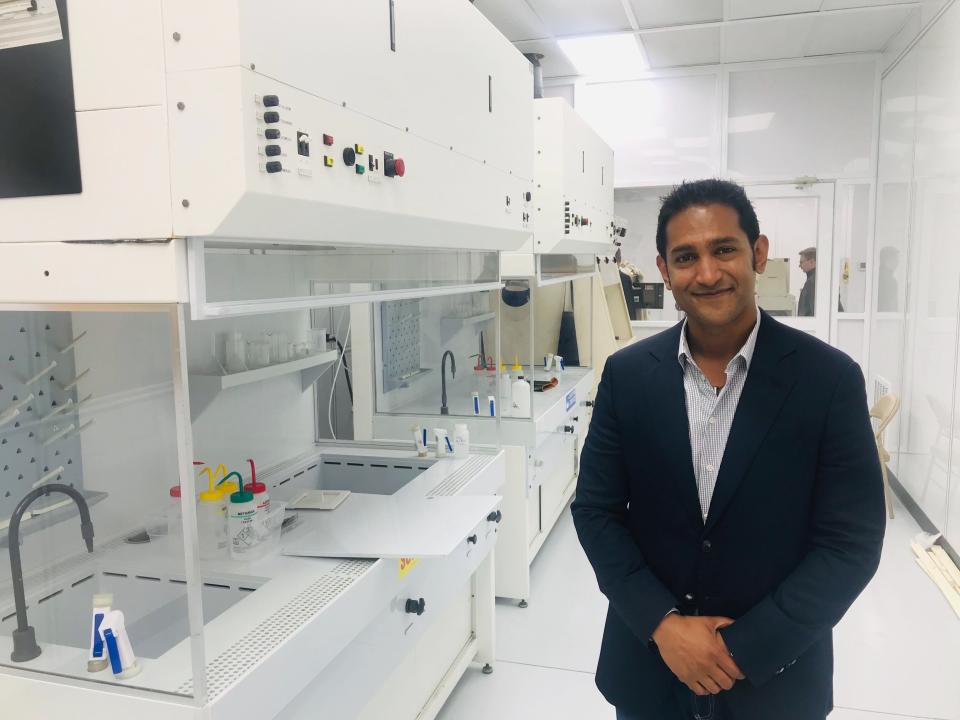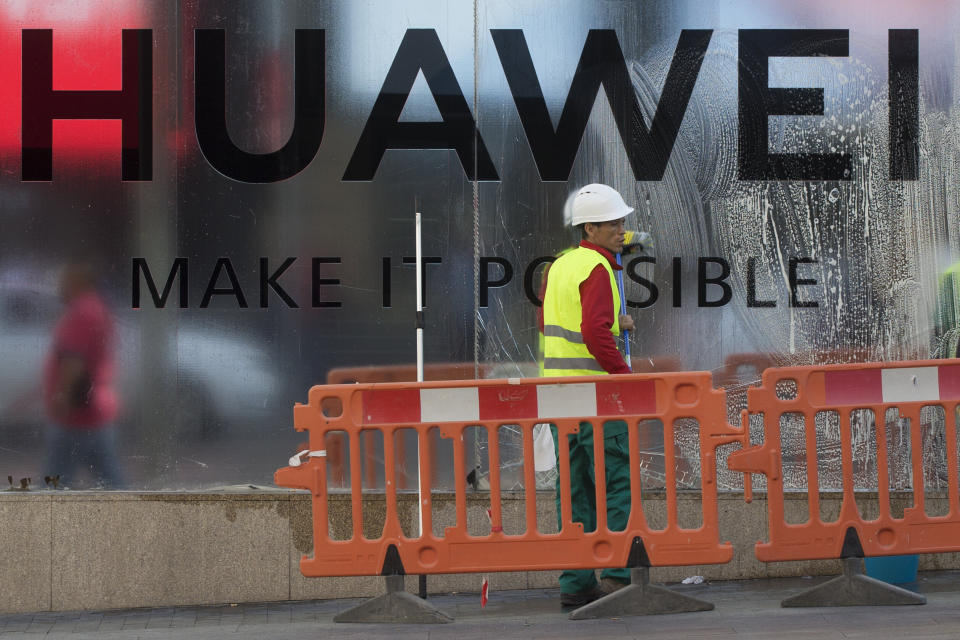Huawei is a 'national security threat' that tried to steal my tech: Akhan Semiconductor CEO

As American technology firms heed Trump’s executive order effectively banning U.S. equipment sales to Chinese telecom giant Huawei, Akhan Semiconductor CEO Adam Khan sees anticipated short-term pain as long-term gain.
“I don't think that the U.S. has actually been aggressive,” Khan said. “I think that Huawei has been aggressive against the United States and the U.S. has been very muted in this response. What I would like to see is more conversation around American intellectual property, and how much has been stolen versus what we can do to prevent future instances.”
Khan says he and his company became embroiled in a U.S. Justice Department criminal investigation against Huawei when a sample of his proprietary diamond-coated glass, sought after by the world’s largest mobile device manufacturers as next generation technology, was returned from Huawei, in pieces.
“It came back inside the box, you could hear glass breaking against it,” Khan said. “We open it back up and then putting the pieces together, you could see there was large portions of the glass missing.”
‘Protecting American innovation’
On May 15, President Donald Trump issued an executive order prohibiting U.S. companies from using telecommunication equipment designated by the Secretary of Commerce as a risk to national security. The order also bans U.S. companies from selling goods to China if the goods contain 25% or more technology or material originated in the U.S. American companies have until August 19 to comply.

So far, the Trump administration has maintained that the executive order and sanctions address U.S. concerns that Chinese companies pose a national security threat and are unrelated to the broader U.S.-China trade dispute. Huawei told CNBC that blocking it from the U.S. market could hurt the development of 5G technology.
“Restricting Huawei from doing business in the U.S. will not make the U.S. more secure or stronger; instead, this will only serve to limit the US to inferior yet more expensive alternatives, leaving the US lagging behind in 5G deployment, and eventually harming the interests of US companies and consumers,” the company said in a statement.
For his part, Khan said his case is just one example of attempts by Huawei to steal U.S. intellectual property.
“As a young innovator, and an American innovator that did all the R&D here domestically, I would love for this to be the case that turns the ship on this culture that it's okay to steal from startups and young researchers and get away with it and, and settle with a lawsuit downstream,” he said.
Khan hopes the U.S.’s current sanctions against China end up serving a secondary purpose.
“I think for right now, it's not really speaking to protecting American innovation,” he said. “I think right now, it's just a national security threat, and they're kind of pigeonholing it there. But I do see that it’s part of a broader discussion that needs to be brought to light.”
To critics who argue that the U.S. could ultimately harm its own economy through sanctions against Chinese companies that force more Chinese innovation and in turn decrease reliance on American manufacturers, Khan disagrees.
“I don't think their position is as strong as perhaps they're portraying,” he said. “They are very reliant upon our core technologies, and not just electronics, and not just chips themselves. The metallurgy, the way we actually form the phones, the ceramics, I mean, these are all American know-how.” So long as European partners are aligned with the U.S., Khan said, aggressive sanctions against China do not increase risk.
“They will attempt to have their own capability, but China has already spent over $300 billion, trying to get semiconductor capability internally, and they have largely failed. It's that very reason why they're going so far as stealing technologies, because acquisition and R&D is not working,” Khan said. “I’d be strained to name one good Chinese chip company at the moment.”
To those who say the U.S. has not produced enough evidence of Chinese attempts to steal U.S. intellectual property, or pose a threat to national security, Khan points to a January 2018 Le Monde report claiming that China installed backdoor technology on a computer network to transfer data from the African Union’s servers in Addis Ababa to Beijing, a U.S. indictment filed against Huawei alleging theft of T-Mobile’s intellectual property (TMUS), plus claims that Vodafone found hidden backdoors in Huawei equipment, which Vodafone denied in a statement to BBC.
A race against Huawei
As for Khan, his company is now in a race against time to bring his own technology to market before Huawei does. During a recorded call, he said, Huawei’s representative admitted that Huawei had exported his sample to China in violation of a written agreement between the parties, and in violation of an Industry Trade Advisory Committee (ITAC) regulation that prohibits sending the material outside of the U.S.
“We've made it very difficult, there are trade secrets involved beyond just what's patent protected, so we know from a chemical standpoint, there's still a lot of groundwork to be done,” Khan said. “We estimate, at the soonest, maybe 18 to 24 months from that February timeframe where would we be seeing a copycat.”
“We're picking one partner to move forward with and we hope to announce at the end of this year,” he said. “It's a multibillion-dollar market, in and of itself, just on the glass side. Differentiation is the key in mobile, right? So if you have a diamond screen it’s ... huge — so first-mover advantage, I think is the biggest potential loss of opportunity.”
Huawei did not respond to Yahoo Finance’s request for statement concerning Akhan’s allegations.
An FBI investigation into Akhan’s case is ongoing. Khan says his company anticipates filing a separate civil action against Huawei, immediately after the Justice Department files criminal charges.
Read more:
Trump’s trade war is suffering mission creep
Huawei’s ‘fake demand’ distorted global semiconductor growth
What is Huawei? Crown jewel now in US crosshairs
Alexis Keenan is a New York-based reporter for Yahoo Finance. She previously produced and reported for CNN and is a former litigation attorney. Follow on Twitter @alexiskweed.
Follow Yahoo Finance on Twitter, Facebook, Instagram, Flipboard, SmartNews, LinkedIn,YouTube, and reddit.

 Yahoo Finance
Yahoo Finance 